Gay Subtext in Frozen and Other Disney Films: Whose Agenda is It, Anyway?
Earlier this week, Mormon mother Kathryn Skaggs wrote an article accusing the newest Disney film, Frozen, of being part of “liberal advocacy to normalize homosexuality in society”. Skaggs goes on to draw parallels between the main character, Elsa, and the struggles of the modern day gay individual. Both, according to her, deal with oppression and other consequences of being different. However, what Skaggs is most alarmed by isn’t necessarily Frozen itself, but rather Hollywood’s attempt to sneak liberal messages past the attention of conservative parents, in a form that will easily convert their impressionable children.
Similar accusations were made throughout the 1980’s, during a movement now known as the Satanic Panic. After the publication of The Satan Seller by Mike Warnke, a pastor and self-proclaimed ex-Satanist, many believed demonic messages were being transmitted to the youth of America through cartoons, toys, and board games. In the film Deception of a Generation, paster Gary Greenwald took his sights off rock music to focus on criticizing children’s programming like “Scooby-Doo” and “He-Man, Masters of the Universe”. The movement has since began focusing more on criminal activity which is blamed on Satan worshipping, but Skaggs’ article proves there are still parents who believe sinister subtext still exists.
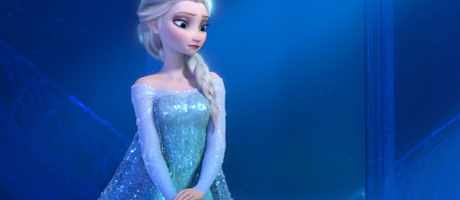
What Skaggs and her historical counterparts don’t seem to understand is that subtext rarely works on children. In one sense, there are subtle emotional nuances a child can understand. For example, when Elsa looks off into space, with even a slight frown, they can tell she is sad. If they don’t see it somewhere in her expression, or her isolation, the music itself will remind them of other sad scenes, and they might even start crying. That is subtle, but not what Skaggs would have us believe is really going on.
Symbolism and philosophical rhetoric are two highly complicated aspects of Western film. Very few people would guess Wizard of Oz is based on a novel with a populist political subtext. However, the movie only slightly relies on the source material, opting for colorful set pieces and extravagant dance numbers. As a result, there is little reason for any child to watch the film thinking “the working man deserves his day”, since what is essentially an allegory (the novel) is repurposed to tell a simpler story (the film) about appreciating where you come from. And yet, a person who has previous knowledge of the book will be able to see past the musical tropes and pick out a couple of the original author’s ideas. Subtext itself is not subliminal messaging, but an inside knowledge of what something is doing beyond the first layer of content.
In the same way, there are traces of Frozen which could mean something to a gay person who believes he or she is being ostracized, but it would be completely coincidental. Unless Frozen directors Chris Buck and Jennifer Lee were to admit to this intent, all we have to go on is the surface value of Frozen: an entertaining animated adventure about loving yourself and loving those that accept you for who you are. Any innuendo put upon the story does not qualify as subtext just because it can be twisted to promote some other political agenda.
Another question is how liberal media’s seduction of the innocent would make for willing political activists. Most upstanding adults who understand their children’s programming contains a hidden agenda would not support it even if they agree with the message. Liberal or conservative parents alike enjoy authentic morality in the media for their children, and any attempt at “sneaking something” under their collective radars does nothing to gain their trust or convince them to raise their children with a different set of values.
Likewise, any child made aware of a secret message being aimed at them, while initially loving the novelty of the clandestine content, will eventually lose interest. There is a period which we all noticed something different about Jessica Rabbit or felt our cheeks turn pink at the swearing in Transformers: The Movie. Pretty soon, however, these adult themes became something that was a common part of adult material, and the special inside knowledge became old hat. Likewise, those of us who took the exciting environmental advice of “Captain Planet” to heart would soon forget how important his monologues once seemed, and the same goes for coded thematic material. What Skaggs believes to be a secret agenda would be no more appealing to a child over the years then the dozen anti-bullying, self-esteem boosting children’s programming normally promotes. And until a child grows up, there is as much threat of their voting for gay marriage to be legal as it is for them to buy a Prius or solar panels.
The ones benefitting the most from gay subtext in Frozen, or demonic subtext in He-Man, are the ones doing the accusing. Whether it’s Gary Greenwald in 1984 claiming God told him cartoons were demonic, or Mormon bloggers today reading into Disney movies, both receive undue attention neither truly deserve. The reality is that there is a strange security to believing you see the truth when no one else does. And yet, as Elsa discovers, isolating yourself for too long can prove to be a dangerous thing. As she creates her own castle in the sky, many extreme conservatives are erecting ivory towers to protect their loved ones from societal normality for the sake of feeling self-empowered. Skaggs and thousands of moms like her could use another look at Frozen: it may give them the courage to admit their true power lies not in their cold-hearted isolationism, but in sharing the universal messages of love and acceptance we all too often take for granted.
What do you think? Leave a comment.
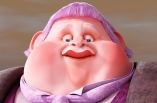
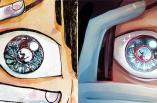



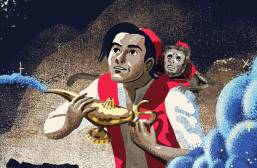
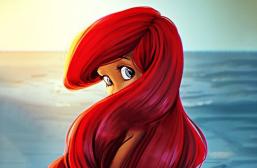
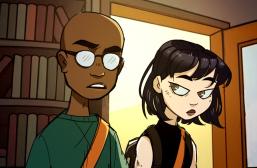
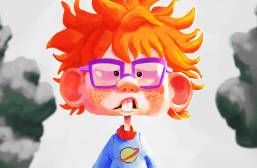


This woman must have seen a different movie than I did. I sure would never think myself innocent by any stretch of the imagination, but the only underlying themes I saw was growing up beyond emotional abuse, a warning against being emotionally FROZEN, and/or being too open. I saw a warning about having either the mind or heart frozen… I saw a call to hold onto the fun of childhood… I saw a don’t hold back creativity type theme. I saw a fun movie that my kids enjoyed.
Funny, that I identified with Elsa in that emotionally frozen state and how it affects those around you in ways you don’t foresee, and how when you let it go, the world can be beautiful again.
Maybe I have become innocent… I am ok with that! Seems like it is better for my kids!
So, a heart-warming movie about female empowerment is seen as an agenda to normalize homosexuality? This is like the Texas minister who slammed Sesame Street for having Bert and Ernie living together saying it promoted homosexuality. Wow, people really do see what they want to see. Granny needs to check her prescription for her glasses and whatever other meds she’s on.
Most of the anti-LGBTQ people are up in arms about Frozen because of the 2 second scene in the general store where you see the big shop keeper motion to his family in the steam room where another adult male (presumed to be the other guardian) is hanging out with their kids.
I did come across that, and the original article mentioned it, but only in passing. Her main problem was with symbolism and subtext, but I’m glad you brought that to people’s attention. It exemplifies the extent this rabbit hole goes down.
I suppose the male in the sauna could have been his lover or something, but he could just have easily been his grown-up son. There was also an adult woman in the shot, so she could have been his wife. Any presumptions on the part of the anti-LGBT community is just speculation. I doubt Disney will come out with a press statement saying otherwise.
She overlays her desire to see the world a certain way with the images from the movie. Using her logic the Hobbit is an attempt to advance the homosexual agenda. Think about it, a bunch of guys together on an “adventure”. The only one to show any interest in a female was poisoned and left behind. A female character, I might add that was not in the original text by Tolkien. In 5 Middle Earth movies there was not a single female dwarf. so it is clear that the “Hobbit: The Desolation of Smaug” is part of a larger media conspiracy that goes back to the 1937.
Great example.
The only thing that I could possibly twist enough to fit this woman’s opinion, is that the younger sister was saved by the love of her older sister. Not by one of the male characters. Everyone out there that has a close relationship with a same sex sibling KNOWS that that love is eternal. No one will ever know you better. I don’t have a sister, but I’ve witnessed the love other sisters with a great deal of envy at times. Sisters I grew up with still getting together and sharing everything into their 50’s now. I bet they are there for each other for life. It a beautiful story.
I also have two older sisters. It also frustrated me that anyone could distort such a great message about sibling love into political propaganda.
People like that woman frustrate me. I completely agree that children won’t look beyond what is shown on them on screen. We’re only taught to do that in high school English classes.
Great article though.
I think this is another example of any current film with an ‘outsider’ being immediately associated with homosexuality. There are connections, but the same connections exist with various ethnicities, religions and, of course, gender. What would they say about The Little Mermaid? Mulan?
The funny thing is that the ‘message’ I got walking out of the theater was that Disney wanted to make a princess movie that wasn’t a ‘princess movie’. If anything, the ending was more feminist than ‘gay agenda’ (and I do mean that in the most positive way possible.)
I completely agree with you. I walked out proud of that movie thinking I would love to sit and watch that movie with my little cousins so they could learn that you don’t fall in love with strangers and that you can be self-empowered and not completely dependent on others.
Hmm… I definitely didn’t pick up any of this when I watched it. I think every child deals with feeling different or left out at some point in their lives, and these movies help them to deal with that.
Great post! Ok…I read her blog and her complaints about Frozen. Truly bizarre! Evidently Elsa’s magic is a euphamism for homosexuality. Hiding her oowers, being locked away, objecting to straight marriage of her sister, etc.
She even claims to have seen a gay coupe in the film, only to be corrected by her very readers that it was a man and his son.
I would rather not give her blog the numbers. She doesn’t deserve views.
This is a really interesting read and take on Frozen. I think this is the typical over reading and hyper-analysing that is common in our time. Looking for messages and signs where there aren’t any, or asserting if there were it might hurt the eyes of our unassuming children. Kids don’t see gay subtexts or anything else for that matter, they take the narrative as it is and perhaps adults should think about doing the same.
Well her obsession over gay people only points to her own inner problems and supposed self-importance! It’s pretty sad, because she could be spending time helping out in this world instead of getting her knickers in a bundle over perceived nonsense!
I’m actually surprised that this argument was even made. Watching Frozen, I did not get any of those “underlying” messages. What I did get, was the sense that Disney is really expanding their story-lines in a positive direction. I even found this movie to be a lot more child-appropriate than many cartoons and programs nowadays.
I think this woman just saw what she wanted to see. Elsa’s predicament in Frozen could represent any number of things which can leave you feeling outcast from society, but that’s what made it great – it’s universal, it could apply to anything, which has made it so popular. And what’s wrong with teaching children that if there’s something about themselves that they feel is different, there’s always some way to find acceptance somewhere and that they can embrace who they really are. It’s wrong to try and keep themes and ideas like that AWAY from children, even if they don’t understand it quite yet. Great article.
Wonderful article. It is amazing to see what degree the human being will ignore actual evidence and instead make large claims based on opinion or emotion. Opinion and emotion are all great- but it is when people begin to market those as facts, that they feel or think there is an evil subtext that has been constructed to destroy our youth, that a problem appears. Also, lady be straight up crayfish. As you pointed out, the empowering feeling that can be gained from being right when nobody else is can be a dangerous thing.
One more thing I would add, though, is that I have found that children understand a whole lot more than most might believe. While it is true that most children will not have as much knowledge as an adult, children are very very quick to draw connections between things and make complicated associations. Young people watching Frozen could very easily have heard a political argument the day before about gay rights, oppression, and acceptance and applied this to the movie. The thought could be a fleeting remembrance or a mantra that reenters the child’s mind over and over again, depending on a ton of different factors. While it would be ridiculous to suggest that a young child could use high theory to deconstruct the various themes, etc, in Frozen, it is not so wild to consider that the child could connect the dots and have it make a lasting impression.
I haven’t seen this movie yet but from the previews, it doesn’t appear to have that anywhere in the storyline. It’s just a freaking cartoon for kids. Nothing more. Stop putting things into things that aren’t there. It seems like everybody looks for things where there isn’t anything.
Whether or not you agree or disagree with her, Frozen had a lot of complex themes that most kids wouldn’t get and I wouldn’t call it a children’s cartoon just because Disney made it. I personally won’t encourage my kids watch a movie that bad too much dark and depressing moments.
It’s nice to see an article that is as much an effort of articulate, eloquent, and a well thought out position as it is thought provoking.The examples he chooses to use here-such as the “Satanic Panic” of the 1980s- call to mind the fear and suspicion that was rampant during the Salem Witch trials, but placed in a modern-day context in regards to the issue of homosexuality.As an avid reader, I find it incredibly refreshing that, when it comes to shining light on the radical political and religious agendas that abound in the media, Matos’s article does not adopt a radical tone itself.By doing so, Matos shows how silly and unfounded these radical subtexts really are.
I honestly can’t find the joy and love for this movie that a large portion of people seem to have. The movie was silly and childish, of course, it’s for children, but I saw no underlying themes promoting any kind of social change. Is this really a movie about female empowerment just because it’s about two sisters? Anna is cute and clumsy and she can’t seem to solve any of her problems by herself. When Elsa flees the kingdom, Anna just decides to up and take off, by herself, into the mountains with no food and no warm clothing. What a smart decision! She has no distinguishing qualities, and her main objective throughout the film is to meet a man. Many loved Elsa’s character for being so “strong and independent”, but again, I don’t see it. While I agree with the message of the song “Let it Go” in certain cases (for example, I think it’s great that it was reclaimed by members the LGBTQ community) perhaps not in context of the movie. After all, it doesn’t seem like a very good idea to “let go” of your responsibilities, ditch your duties and cause problems for everyone else in doing so. Lastly, both Anna and Elsa are thin, beautiful, young, white, wealthy princesses who solve all their problems with love and friendship. It’s really nothing we haven’t seen before.
I’m glad that you made the distinction between subliminal messages and subtext. My understanding of subliminal messages is that they necessarily include intent, while subtext is more personal and is something that an individual consciously observes. A large part of the beauty of film, and art in general, is that viewers can all take something different from it. Subtext exists in any work of art, and is subject to interpretation. Someone who feels ostracized, whether for being gay or any other reason, may watch Frozen and leave with the understanding that it’s okay to be different. As these comments show, others will see the film and simply take it at face value. The blogger you reference makes it sound as if Disney is sneaking subliminal messages about homosexuality through Frozen, but honestly, if Disney wants to release a film that will help to normalize homosexuality, they can do it explicitly instead of depending on viewers to pick up on the subtext.
Nice read. I’ve seen the movie. I’ve heard the song. I’ve never thought anything was geared toward homosexuality. Seems a bit farfetched to me.
This was a really great article! I just recently saw Frozen and reading this was refreshing since I am just now understanding why people are getting so worked up about this movie. I thought it was pretty good. I do think that people inject an unintended meaning to a story, but considering Frozen to have a homosexual subtext just seems absurd to me. Elsa isolated herself because she had a secret she did not want others to know about–that’s about everyone in the world, not just homosexuals.
While I have heard that “Let It Go” is seen as some kind of anthem for coming out of the closet, the writers and others who worked on the movie have said that Elsa is most closely a metaphor for people with panic and anxiety. I’d go so far as to say not only is she a metaphor for these kinds of things, she experiences them herself pretty clearly in the film, especially in the scene when she is alone in the ice castle and she is trying to remind herself to stay calm only to create more anxiety in herself. I think what this blogger mistakes for a specifically “homosexual agenda” is, in a broader sense, the spotlight on anyone who suffers from feeling ostracized or shut out from society for any reason. Homosexuality is an easy latch-on because it happens to be at the forefront of media attention these days.
While I was aware of the criticism about the store owner’s family, I wasn’t sure about the other subtext arguments. Firstly, Elsa is considered an “outsider”, bullied and cast out. And while the LGBTQ community has faced these stigmas, other minority groups have as well. The fact that she is acknowledging that the LGBTQ population is oppressed seems counterintuitive. Though one of the morals of the video is accepting other’s differences, but I think she’s reading too much into the plot. And even if there are subtextual messages about Elsa, which I couldn’t see, there is really nothing wrong with this movie. I think she’s just projecting hot topics in the movie and trying to get attention. Anyways even if her claims are true, it’s about time Disney had LGBTQ characters.
Great read!!
I saw Frozen and thought “Wow this is a very beautiful allegory for the plight of gay people everywhere” but that’s just because I have those insights and I’m able to apply them to any film I see. Elsa is ostracized for being different, and she does hide her secret from her sister for the sake of preserving her innocence. But in the end Anna knows that family takes precedence over everything else and loves her for who she is. The more upsetting part to me is the fact that people see a film about loving your family members for who they are and believe that message is harmful for their children.
I find your points very interesting. As for the subtext it’s not something I saw before but I think it’s perfectly reasonable to be aware of the possibility. Especially with Oaken’s husband and children in the Big Summer Blowout scene. Disney is obviously becoming more open to the idea of different sexual identity and family roles. Especially with their sticking to “love conquers all” but not necessarily their old-fashioned version of love we all know in classic Disney films.
It was only recently that I watched Frozen (loved it) and had not given much thought to the sexual politics of the film. I think the writer hits the nail on the head. Films have a long history of praising “the outcast” as an archetype. It’s likely that Disney didn’t have a specific outcast in mind, but meant for their movie to apply to any number of people who feel different because of who they are. The woman accusing Disney of promoting homosexuality is simply projecting her fears onto a film that was designed intentionally as a blank slate. It says more about her than it does about Frozen.
I think “the outcast” archetype is the key here, as Jamesonstarship says. The X-Men comic (“fighting to save a world that hates and fears them!”) is another example of a canon that has been interpreted as a representation of minority groups of all kinds, from race to sexuality to religion.
I loved Frozen because of its divergence from the typical “true love’s kiss” ending between the male and female characters. While it could be about promoting gay rights, it is about acceptance for who you truly are. That can include sexuality or any other personality trait. I wish more people would understand that instead of attacking the movie.
Every children’s movie has a some type of lesson or subtext written into it that often diverges from the original text if it is based on one. It would be interesting to see how some of these people would react to the original stories their favorite children’s movies are based on and how different they are.
Having watched Frozen I felt the dominating message was about family, particularly the relationship between Elsa and her sister Anna, and to not be afraid of who you are even though you’re different. A lot of people from all walks of life can relate to that kind of message.
Comically, on the flip side of the argument, there’s a Spongebob episode where Squidward moves in with Spongebob because he can’t (and the won’t) find a job. This is often blasted for having a conservative subtext. However, I ultimately agree with you that children won’t care. I grew up with the Spongebob episode, I still think it’s funny, and I don’t exactly agree with what political message people read into it. I agree that the political message is there in the episode, but no kid would put two and two together unless an adult explained the political message.
As for Frozen’s supposed political message, that’s BS. So in addition to kids not caring, I agree that there’d be nothing for them to care about.
Great article! I’d never heard of this controversy on Frozen.
You haven’t? I’ve read a bit about it. As for SpongeBob, interesting. I never knew that. Thanks.
Our time and era take part as well. These days, any movie about having something you are born with which and getting hated for it but later accepted and becomes a part of who you are must always equal gay. Fifty years from now, when this is no longer relevant, it will equal something else. Some read too much into things. A far as I’m concerned, Elsa just has ice powers and it’s as simple as that. Whatever it is meant to promote, as you said, children will not take it to heart. They are kids. All they care about is Elsa, her colorful powers, Anna, her relationship with Hans and Kristoff, and Olaf.
Thanks for this.
The largest case for queer messages in Frozen (and I use the word “queer” to refer to anything which is not heteronormative and common ground between all manifestations of the LGBTQ spectrum) is the fact that the action of the film leads to an “act of true love” between two women. Yes, they are sisters. No, they are not gay for each other. This is why I use the work “queer” as their relationship is one that is “queer homosocial” i.e. two members of the same gender are empowered by each other. So in that way, no Frozen isn’t gay-themed as a whole, but the queer themes of the movie subvert heteronormativity in a way that is empowering for the LGBTQ community. O and there have often been people accusing Disney of gay themes, especially in the 90’s. If anyone is interested in reading about the gay historiography of Disney I recommend the book Tinker Belles and Evil Queens. It is a gay male-centric reading of Disney but interesting nonetheless.
Thanks for this. I can definitely see where the LGBTQ community would gain encouragement from Frozen, but I don’t think the movie, or Elsa, have “gay agendas.” People like Ms. Skaggs need to relax. If anything, Frozen and Elsa have a unique opportunity to speak to anyone who has felt ostracized for any reason.
A thought: You could write an entire article on this. Frozen’s four main characters–Anna, Elsa, Hans, and Kristoff–have felt or been isolated for any number of reasons. Yet they each handle it in vastly different ways, leading to engaging character arcs. Whether or not LGBT undertones exist, that alone is a great reason to embrace the film.